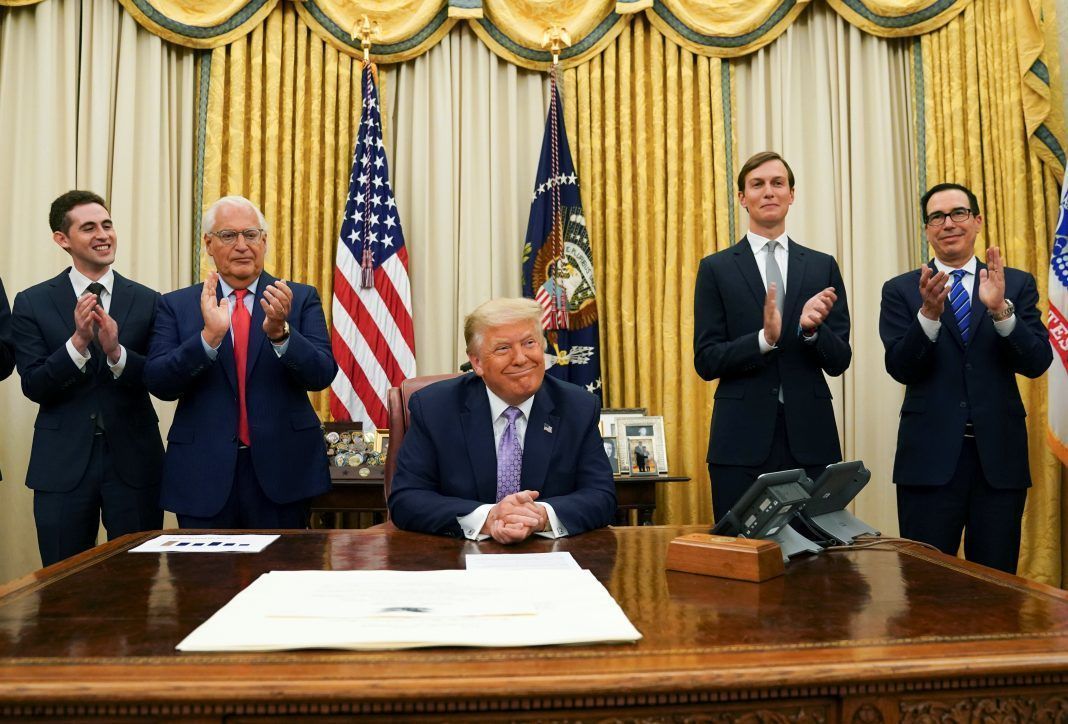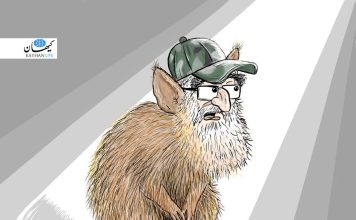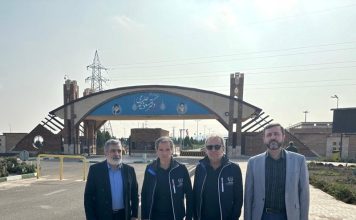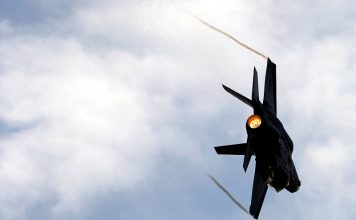By Ahmad Rafat
The Abraham Accord, a historic peace agreement reached between Israel and the United Arab Emirates (UAE) on Aug. 13, could end the 70-year conflict between Israelis and Palestinians and change the face of the Middle East.
After the 1979 Egypt-Israel Peace Treaty, the Abraham Accord is the most significant step towards establishing peace and stability in the Middle East. There have been significant developments in Arab-Israeli relations in the past 40 years, prompted in part by the Islamic Republic’s political ambitions and military actions in the region.
Abu Ibrahim, a Palestinian journalist born in the Gaza Strip, has described the accord as a “miracle.” For the past eight years, he has been working with foreign correspondents who report from the Gaza Strip.
“Arab states, particularly the sheikhdoms, have been alarmed by the Islamic Republic’s regional actions for a while now, which has prompted them to improve their ties with Israel,” Abu Ibrahim (an alias), who did not wish to disclose his real name because of the sensitive political climate in the Gaza Strip, told Kayhan Life. “Their mutual fear of the Islamic Republic has brought Israel and Arab countries closer to each other.”
“Although Hamas in the Gaza Strip and the Palestine Liberation Organization (PLO) in the West Bank have condemned the Abraham Accord and accused the UAE of ‘stabbing the Palestinians in the back,’ both groups are trying to use the agreement to their advantage,” Mr. Ibrahim said. “As part of the accord, Prime Minister Benjamin Netanyahu’s government has agreed to suspend its plan to annex parts of the West Bank, which is a significant gain for the Palestinians.”
“To please their masters, the Iranian-backed Palestinian militias in the Gaza Strip, which receive weapons from Hezbollah, fired 16 mortar shells towards Israeli farmlands on the other side of the border,” Ibrahim noted. “Israeli military retaliated by launching ground and air attacks against a military base in the Gaza Strip.”
Mohammed Al-Emadi, the head of the Qatari Committee for the Reconstruction of Gaza, mediated the ceasefire talks between Hamas representatives and an Israeli delegation headed by Major General Herzi Halevi, the chief of Israeli Southern Command, in Doha. It had been a long time since Palestinian representatives had held direct talks with Israeli military officials. So the meeting could be described as another “miracle” resulted from the Abraham Accord.
“Normalizing relations with Israel was a strategic move. However, Iranian policies and actions in the region were a factor in that decision,” UAE’s Minister of State for Foreign Affairs, Anwar Mohammed Gargash, said recently. “The decision was the outcome of a series of policies we started a few years ago. For instance, we broke another taboo by inviting Pope Francis to visit the UAE in 2019. Also, we have promoted solar energy despite being an oil-producing country.”
“Sheikh Mohammed bin Zayed’s [the Crown Prince of Abu Dhabi and Deputy Supreme Commander of the Armed Forces] courageous decision expresses a reality we desperately need. A successful decision is a give and take, which has been achieved,” Dr. Gargash noted. “He understands the strategic landscape, but this is one of the strategic decisions that have to be made, and they will open up the region further.”
[aesop_image img=”https://kayhanlife.com/wp-content/uploads/2020/08/2020-08-27T000000Z_1083733573_MT1LTANA000PN6MF5_RTRMADP_3_AMERICA-ASIA-ISRAEL-MIDDLE-EAST-PEACE-UNITED-STATES-scaled.jpg” panorama=”off” credit=”Abu Dhabi, United Arab Emirates – Secretary of State Mike R. Pompeo (left) meets with the Emirates Minister of Foreign Affairs and International Cooperation, Sheikh Abdullah bin Zayed Al Nahyan (right) in Abu Dhabi, United Arab Emirates, on August 26 2020. REUTERS./ ” align=”center” lightbox=”off” captionsrc=”custom” captionposition=”left” revealfx=”off” overlay_revealfx=”off”]
However, the parties to the Abraham Accord must overcome several obstacles. For instance, the U.S. has sold the Lockheed Martin F-35 Lightning II combat aircraft to its allies. However, Washington has a verbal agreement with Israel not to sell F-35’s to any Gulf state, giving Israel a military advantage in the Middle East. Besides Israel, Turkey is the only other country in the region that has advanced stealth fighter jets.
A day after announcing the Abraham Accord, Prime Minister Netanyahu said that Israel opposed the sale of F-35 combat aircraft to the UAE. In response, the UAE indefinitely postponed an official visit by an Israeli delegation to the country. The UAE believes it needs advanced jet fighters to protect itself against possible Iranian attacks.
The Abraham Accord could have been a historic failure, were it not for the mediation by Jared Kushner, U.S. President Donald Trump’s son-in-law and his special advisor in the Middle Eastern affairs, and a phone conversation between Israeli Defense Minister Benny Gantz and his UAE counterpart Mohammed Ahmed Al Bowardi.
They calmed the situation and paved the way for an official visit by an Israeli delegation headed by the director of Israel’s National Security Council, Meir Ben-Shabbat. Several U.S. diplomats and Mr. Kushner will accompany Mr. Ben-Shabbat and the Israeli delegation during its visit to the UAE on Aug. 31. Their historic trip will mark the first direct flight from Tel Aviv’s Ben Gurion Airport to Abu Dhabi.
During his recent visit to Israel and Arab countries in the region, U.S. Secretary of State Mike Pompeo and a delegation of American diplomats flew directly from Tel Aviv to Khartoum International Airport in Sudan. It was rumored that Sudan had also planned to recognize the State of Israel, but Khartoum has shelved the idea for the time being.
Sudan was an ally of the Islamic Republic from 2001 until a few years before the end of Omar Hassan Ahmad al-Bashir’s presidency in 2019. The current Sudanese government is trying hard to improve relations with the West, particularly the U.S. Its close ties with Iran had prompted the U.S. to include Sudan in its list of countries that sponsor international terrorism.
During his recent visit to Khartoum, Secretary Pompeo told Sudanese officials that the U.S. would remove Sudan from its list of states that sponsor international terrorism if the country were to normalize its diplomatic relations with Israel.
Unsurprisingly, Tehran’s initial response to the Abraham Accord has been harsh and threatening.
During a televised speech on Aug. 15, Iranian President Hassan Rouhani said: “We think this was a wrong move, and condemn this action 100 percent. It betrayed the aspirations of the Palestinian people and Muslims.”
“We warn them [UAE] not to allow Israel into the region,” Mr. Rouhani added. “They have made a huge mistake and committed a treacherous act. They are walking down the wrong path.”
Major General Mohammad Bagheri, the General Staff of Armed Forces of the Islamic Republic of Iran, described the Abraham Accord as a “major disaster that threatens the Islamic Republic’s security.”
[aesop_image img=”https://kayhanlife.com/wp-content/uploads/2020/02/2020-01-09T000000Z_642566432_MT1ABCPR715274017_RTRMADP_3_ABACA-PRESS-scaled.jpg” panorama=”off” credit=”FILE PHOTO: Iran’s Supreme Leader Ayatollah Ali Khamenei (R) greeting newly-appointed commander of the Quds Force of the Islamic Revolutionary Guard Corps Esmail Qaani (L), Iranian Armed Forces Chief of Staff Major General Mohammad Bagheri (C), and Iranian Islamic Revolutionary Guard Corps (IRGC) Chief Commander Hossein Salami, during a mourning ceremony in Tehran for slain top general Qasem Soleimani,Tehran, Iran on January 9, 2020. REUTERS./” align=”center” lightbox=”on” captionsrc=”custom” captionposition=”left” revealfx=”off” overlay_revealfx=”off”]
General Bagheri knows that the security agreement between Israel and the UAE — signed by Israel’s Minister of Public Security Amir Ohana and UAE’s Interior Minister Saif bin Zayed Al Nahyan a few months ago — could have severe implications for Iran. The agreement shows that the UAE is concerned about Tehran’s hostile policies and actions towards Abu Dhabi. The Abraham Accord will pave the way for military cooperation between Israel and the UAE.
The UAE has been trying to buy Iron Dome, a mobile all-weather air defense system, from Israel for some time now. The system intercepts and destroys short-range rockets and artillery shells from 4 kilometers to 70 kilometers.
The Islamic Republic can only wage a war of words against Israel and the UAE right now. In recent years, the Iranian-backed Hezbollah has fired a handful of rockets at the Golan Heights in response to 300 airstrikes by the Israeli military against the Iranian military basis in Syria.
All attacks against the sheikhdoms have been carried out by the Shia Houthi rebels in Yemen, even though the UN’s investigation determined that the missiles that hit Saudi Aramco oil-processing facilities on Sept. 14, 2019, were made in Iran.
Recent demonstrations outside the UAE Embassy in Tehran have been nowhere as violent as the attack on the British Embassy in Tehran on Nov. 29, 2011.
[aesop_image img=”https://kayhanlife.com/wp-content/uploads/2020/08/2020-08-15T154624Z_1062221997_RC2FEI9L8DVU_RTRMADP_3_IRAN-ISRAEL-EMIRATES-scaled.jpg” panorama=”off” credit=”Protesters hold burned American flag and Israeli flag in front of the UAE Embassy to protest the normalization of relations with Israel, in Tehran, Iran August 15, 2020. REUTERS./ ” align=”center” lightbox=”off” captionsrc=”custom” captionposition=”left” revealfx=”off” overlay_revealfx=”off”]
“We do not have a wide range of options regarding trade, given the sanctions,” the chairman of the Iran-UAE Chamber of Commerce Farshid Farzanegan told the Iranian Labor News Agency (ILNA) in late July. “The UAE and Turkey are the only two countries where Iranian merchants can still conduct business.”
“Iran exported $4.5 billion worth of goods to the UAE last year and imported $8.9 billion in products from that country during the same period,” Mr. Farzanegan added. “The UAE is the main foreign exchange market for Iran. It is tough to give that up, given the stringent banking and financial sanctions against Iran.”
This article was translated and adapted from Persian by Fardine Hamidi.








